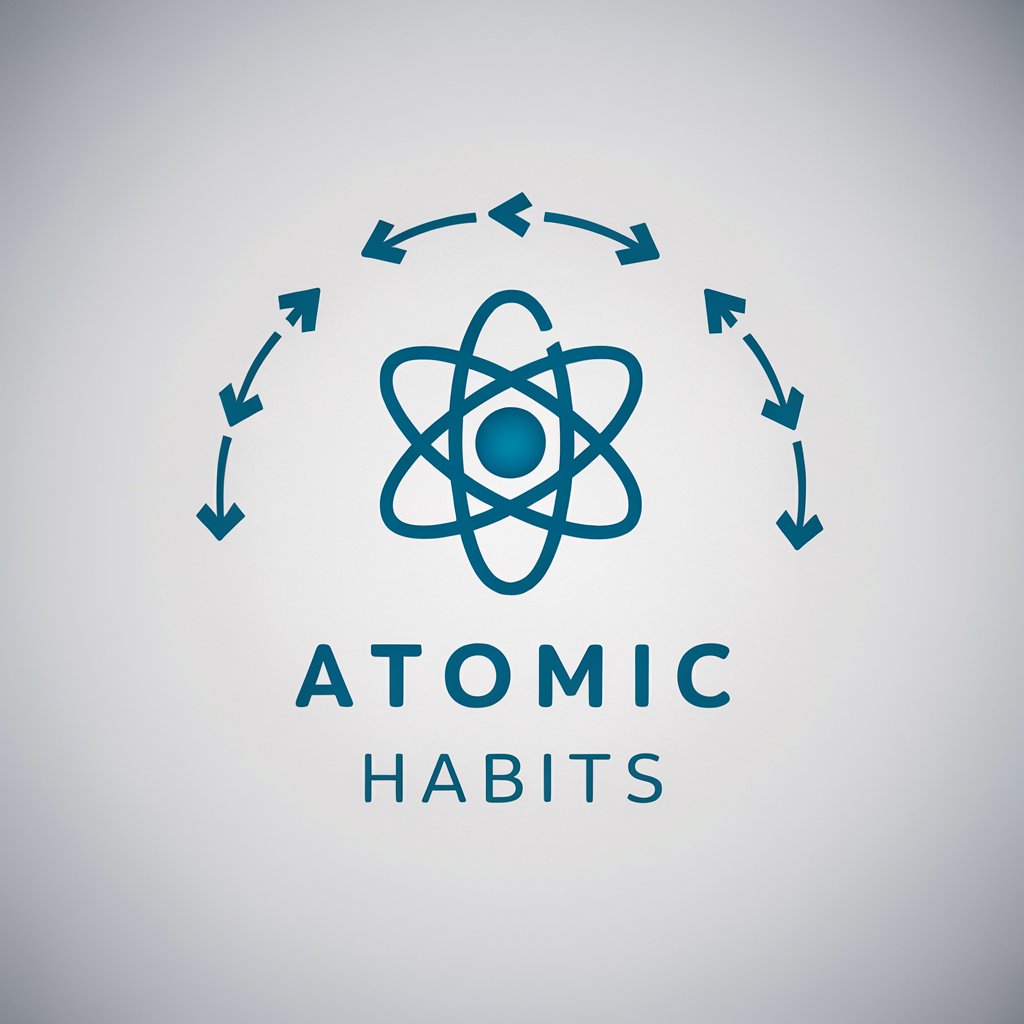原子习惯 - Habit Formation Guide

欢迎使用原子习惯GPT,让我们一起养成好习惯!
Build Better Habits with AI
How can I start building a new habit according to 'Atomic Habits' principles?
What are the four laws of behavior change described in 'Atomic Habits'?
How can I make my environment support my new habits?
What strategies can I use to stay consistent with my new habits?
Get Embed Code
Introduction to 原子习惯
原子习惯, or Atomic Habits, designed as an AI based on the principles and strategies from James Clear's book, focuses on forming and maintaining habits by leveraging small, incremental changes. It encourages habit formation through consistency and long-term progress, emphasizing the power of tiny improvements. This AI provides guidance, advice, and motivational support to apply the book's concepts in daily life, helping users set clear goals, track progress, and overcome challenges in habit formation. Powered by ChatGPT-4o。

Main Functions of 原子习惯
Guidance on Habit Formation
Example
If a user wants to develop a reading habit, 原子习惯 would suggest starting with as little as reading one page per day and gradually increasing the amount.
Scenario
A user aims to read more books but struggles to find the time or motivation. 原子习惯 helps break down this goal into manageable steps, starting with minimal commitment and building up over time.
Tracking Progress
Example
原子习惯 could offer a simple tracking system where users mark off each day they successfully practice their new habit, providing visual progress evidence.
Scenario
A user is trying to drink more water throughout the day. By tracking their intake daily, they can visually see their improvement, which motivates continued effort.
Overcoming Challenges
Example
When users face obstacles in habit formation, such as losing motivation, 原子习惯 provides strategies to adjust their approach or environment to stay on track.
Scenario
A user wants to exercise in the morning but struggles to wake up early. 原子习惯 suggests preparing workout clothes the night before and placing the alarm clock away from the bed to make it easier to get up and get moving.
Ideal Users of 原子习惯 Services
Individuals Looking to Form New Habits
People interested in developing positive habits like regular exercise, healthy eating, or daily reading. These users benefit from 原子习惯's step-by-step approach to small, sustainable changes.
Individuals Struggling to Break Bad Habits
Those who are trying to quit negative habits such as smoking, procrastination, or excessive screen time. 原子习惯 offers strategies for replacing bad habits with more positive actions.
Professionals Aiming for Productivity and Efficiency
Professionals seeking to enhance their productivity and efficiency at work through better time management and focused work habits. 原子习惯 helps by setting clear goals and establishing routines that promote sustained concentration and task completion.

How to Use Atomic Habits
Start Your Journey
Visit yeschat.ai for a free trial without login, also no need for ChatGPT Plus. Explore the basic functionalities and familiarize yourself with the interface to get started.
Identify Your Habits
Identify specific habits you want to develop or change. Utilize Atomic Habits principles such as cue, craving, response, and reward to outline actionable steps.
Set Clear Goals
Define clear, actionable goals for your habits. Use the SMART criteria (Specific, Measurable, Achievable, Relevant, Time-bound) to ensure your goals are well-defined.
Track Your Progress
Use tools and apps to track your habit development progress. Regular tracking helps maintain motivation and provides insights into what's working and what isn't.
Adjust and Iterate
Based on your tracking, make necessary adjustments to your approach. Experiment with different strategies to overcome challenges and improve your habit formation process.
Try other advanced and practical GPTs
活力餐桌
Empower Your Wellness Journey with AI

小智·柒
Empowering Your Journey to Excellence

习惯养成教练
Empower Your Habits with AI

英文Email剖析和回覆GPT
Decipher and Respond to Emails with AI

CPSS解決方案顧問 (無窮迴圈探索)
AI-powered Continuous Solution Exploration

Notion Navigator
Unleash your productivity with AI

微习惯助手
Empower Your Habits with AI

习惯养成助手
Shape Your Habits with AI
让GPT帮你写精准Prompt
Crafting Precision with AI-Powered Prompts
SOPLAN
Empower Your Marketing with AI

让我老王来怼你
Blunt wisdom, no filters attached

酒鬼计算器
Elevate your drinking sessions with AI.

Q&A about Atomic Habits
What is the core principle of Atomic Habits?
The core principle of Atomic Habits is making tiny, incremental changes that add up to significant improvements over time, emphasizing the compound effects of habit formation.
How can Atomic Habits help me achieve my goals?
Atomic Habits helps by breaking down goals into small, manageable actions that can be easily integrated into daily life, thereby making the achievement of larger goals more feasible.
Can Atomic Habits address bad habits as well as good ones?
Yes, Atomic Habits provides strategies for overcoming bad habits by understanding the habit loop (cue, craving, response, reward) and creating a plan to break it.
How long does it take to form a new habit with Atomic Habits?
The time it takes to form a new habit can vary widely depending on the individual and the complexity of the habit. Atomic Habits emphasizes consistency over duration.
Can Atomic Habits be applied to group settings or organizations?
Yes, the principles of Atomic Habits can be applied to groups and organizations to improve teamwork, productivity, and collective habits that lead to organizational success.
